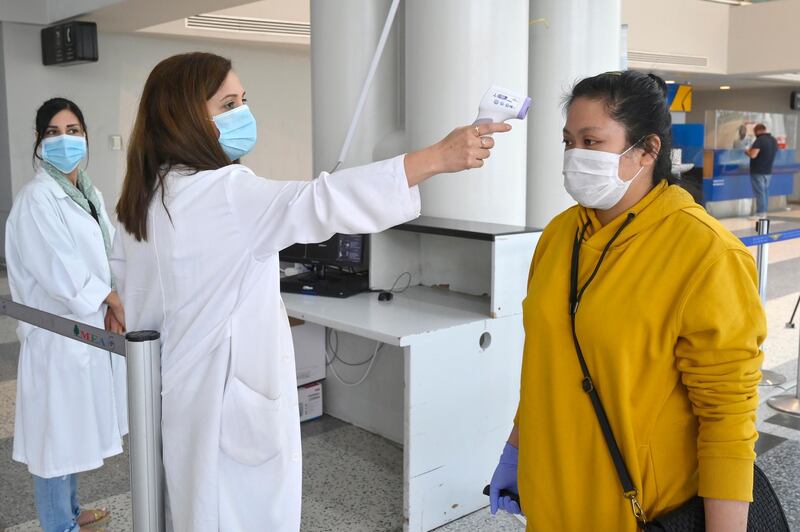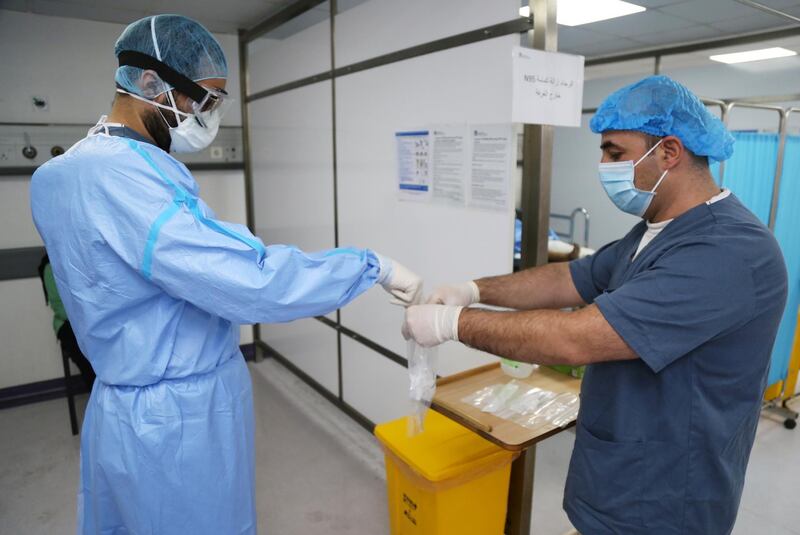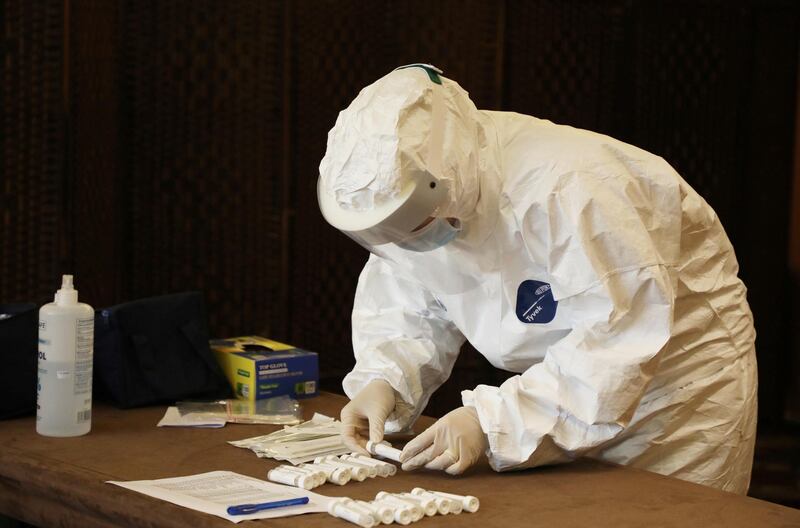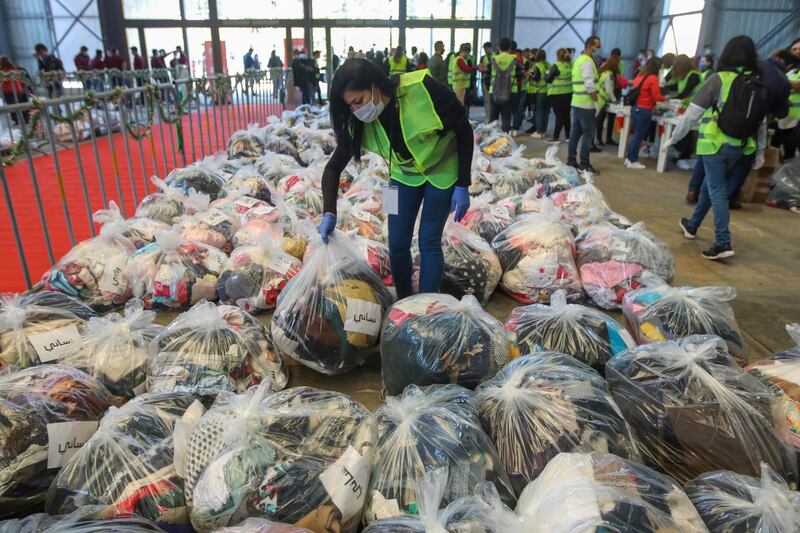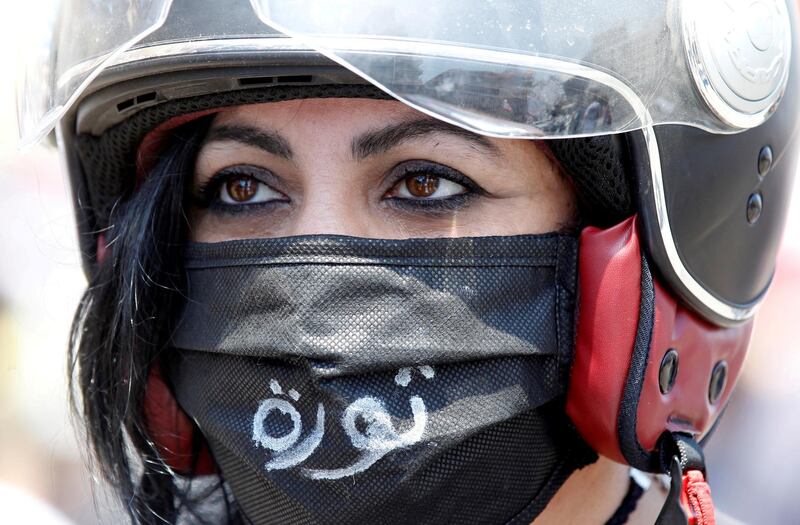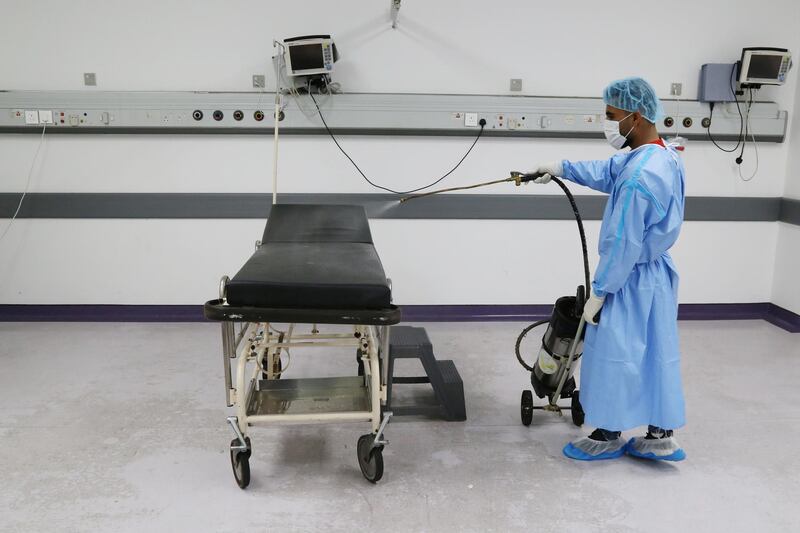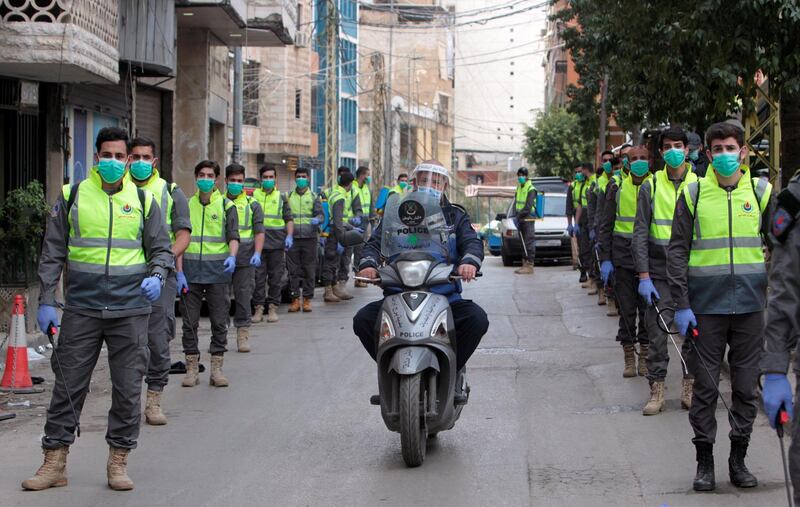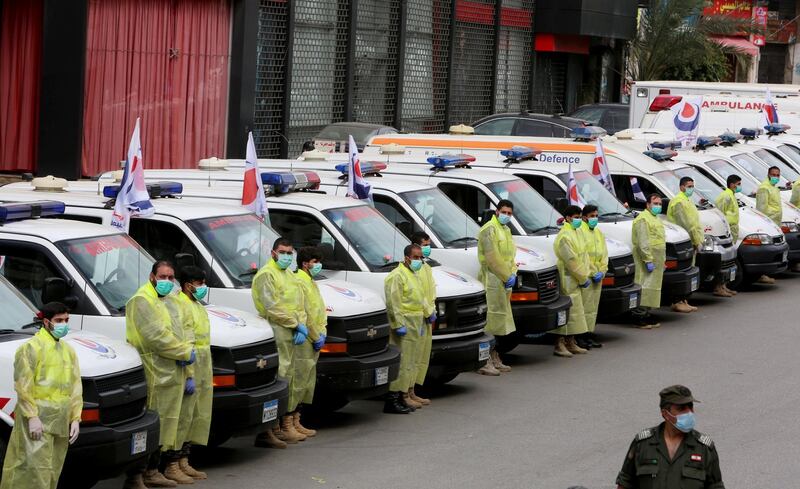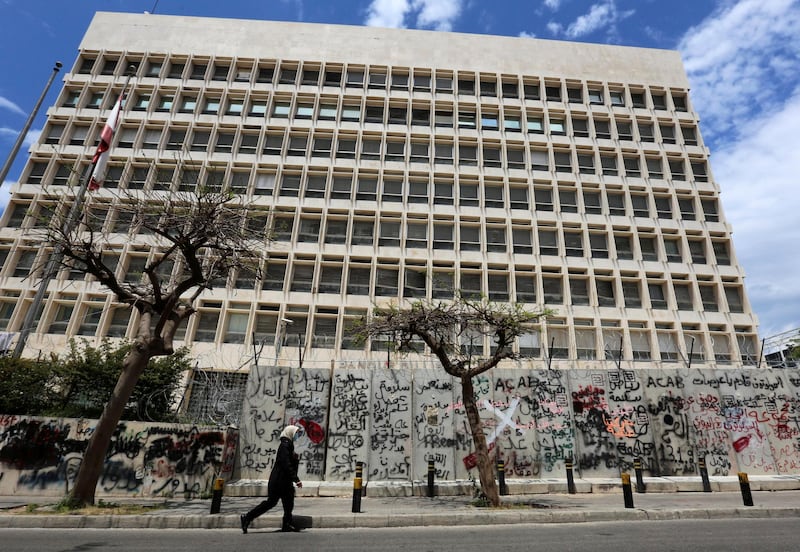The Covid-19 ward at Lebanon’s largest public hospital has reopened amid a marked rise in cases, the head of Rafic Hariri University Hospital said on Tuesday.
The reopening of the ward, however, is purely a “preparatory” move, said Dr Jihad Saadeh.
The ward was never completely closed but was scaled down when Covid cases declined last year.
But now, cases caused by the newest Covid variant are on the rise, and the ward has been re-expanded and placed under total isolation as it takes in patients from across the country, Dr Saadeh told The National.
The rise in Covid cases has renewed fears of a return to 2020, when cases were at their peak and the nation was placed under lockdown.
At the time, experts worried Lebanon’s struggling health sector would be unable to handle an influx of cases amid a steep economic crisis. Wards often overflowed with patients as hospitals struggled with a lack of oxygen, electricity and medicine.
The rise in cases is attributed to a highly contagious Omicron sub-variant, which is less dangerous but highly infectious, Dr Saadeh said.
“This is a new variant — very new. Even people who have taken three vaccines don’t have immunity to these variants.”
The variant does not appear to be more dangerous than other strains, he added, but “it’s unpredictable and we don't know what this variant will do”.
“Maybe there will be danger to those who were infected a month later — we don’t know. It’s still new.”
According to Dr Saadeh, people should take precautions by wearing masks and avoiding large gatherings.
Although the variant has not proved fatal to anyone in Lebanon so far, “those who are immunocompromised need to be extra careful”.
Lebanon's economic crisis is continuing into its fourth year and shortages in the health sector continue to affect daily life, but the less dangerous mutations of Covid have given some respite to the health sector.
“With enough preparation, everything will be fine,” Dr Saadeh added.
